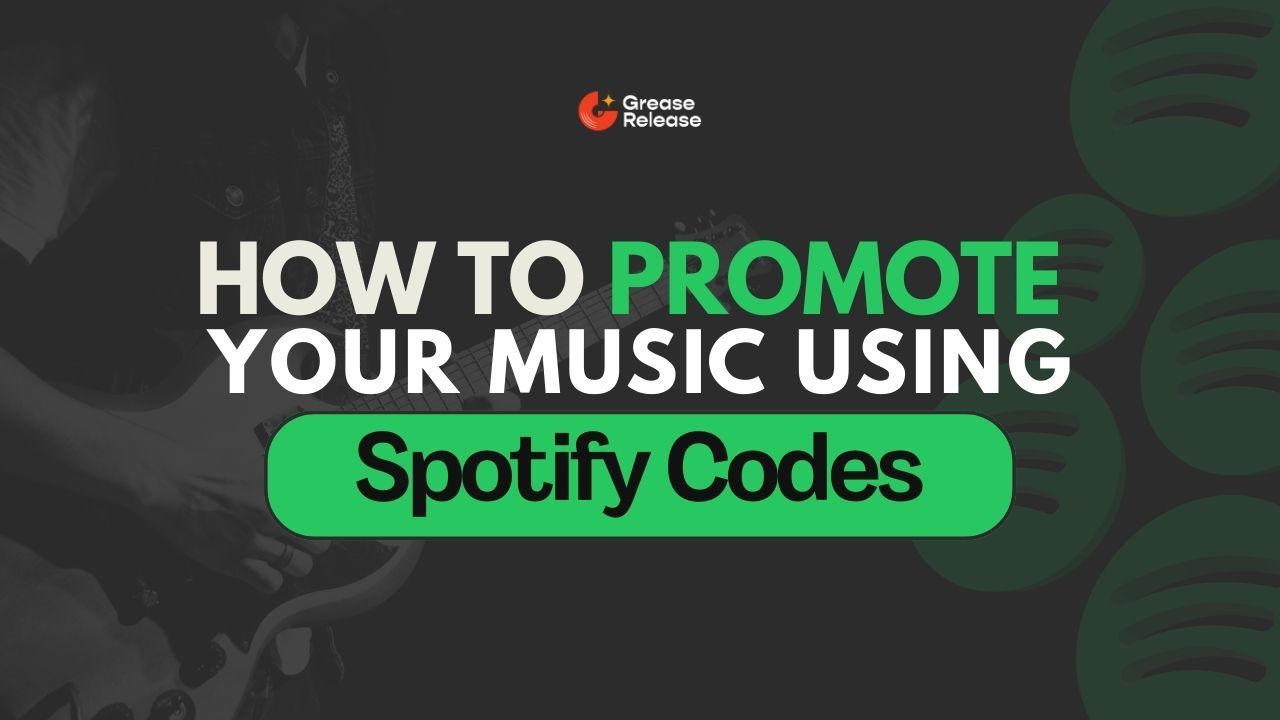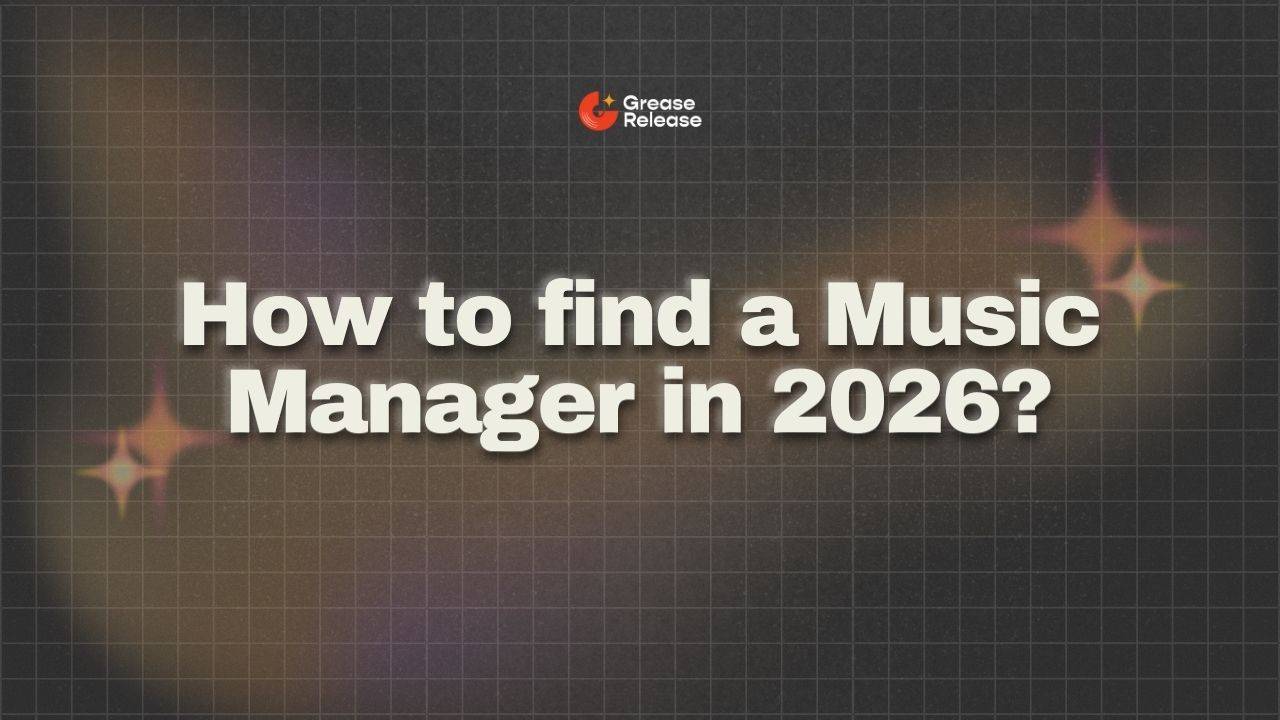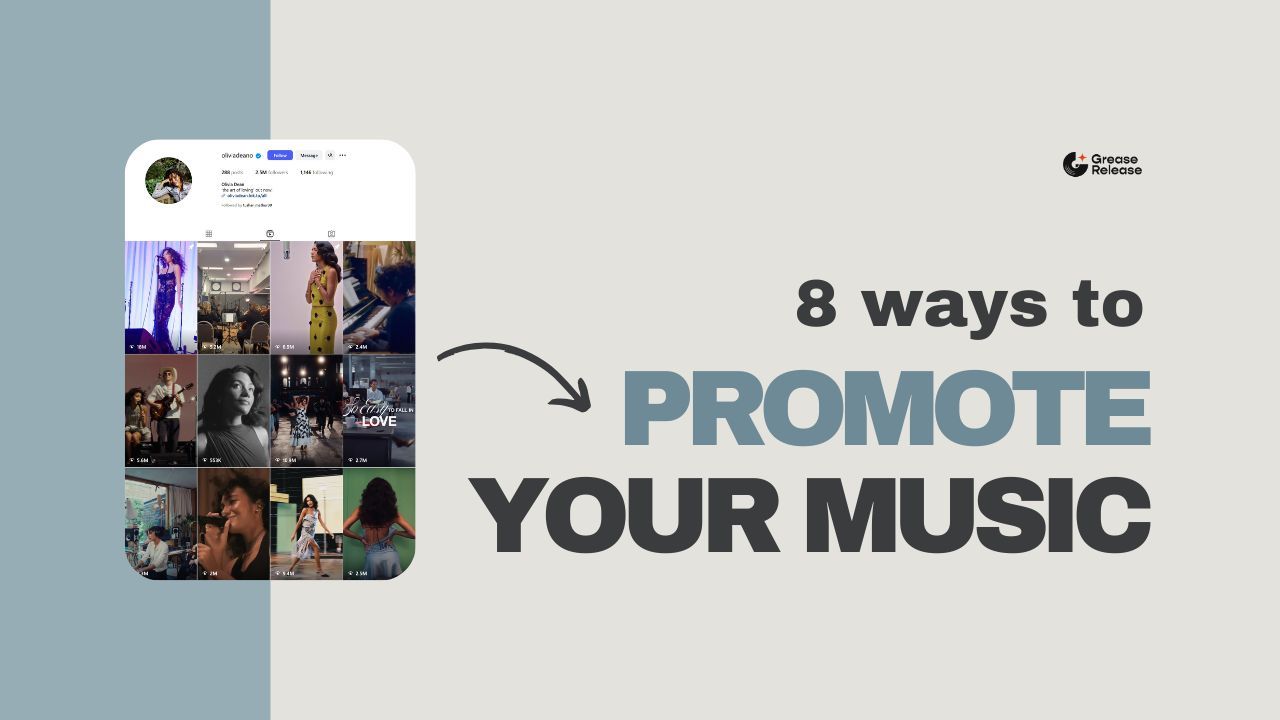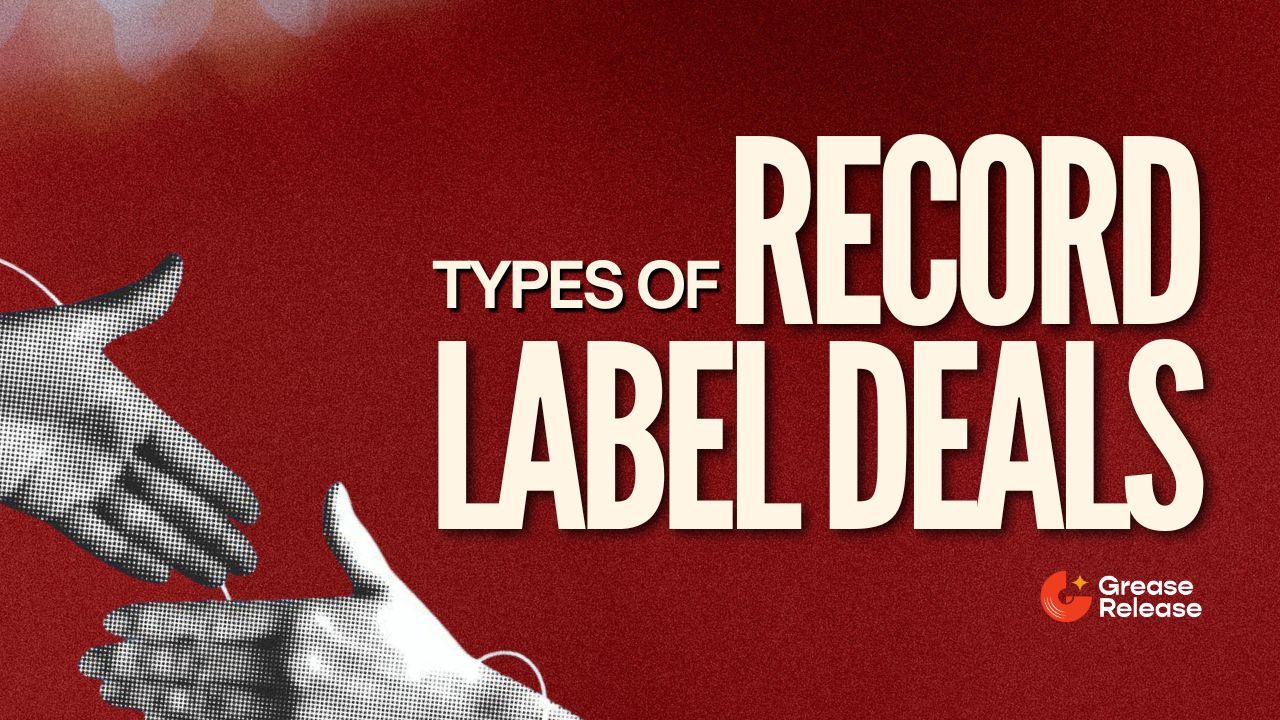
Different Types of Record Deals in the Music Industry
Feb 09, 2026
Getting offered a record deal feels like a big win. For many artists, it’s the moment that says, “I’ve made it.” But here’s the reality: not all record deals help artists win in the long run. Some boost careers, while others quietly take away ownership, income, and control.
So before signing anything, you need to understand the types of record label deals and what they really mean for your future. If contracts feel confusing, it also helps to understand basics like how music royalties work and copyrighting your song, since those rights are often what you’re negotiating away.
Let’s break this down.
- Exclusive Recording Deal – Big Support, Big Commitment
- Non-Exclusive Recording Deal – Low Risk, More Freedom
- 360 Deal – Support Everywhere, Revenue Shared Everywhere
- Composition & Recording Service Deal – Work for Hire
- Recording & Publishing Deal – Two Birds, One Contract
- FAQs
- Final Thought
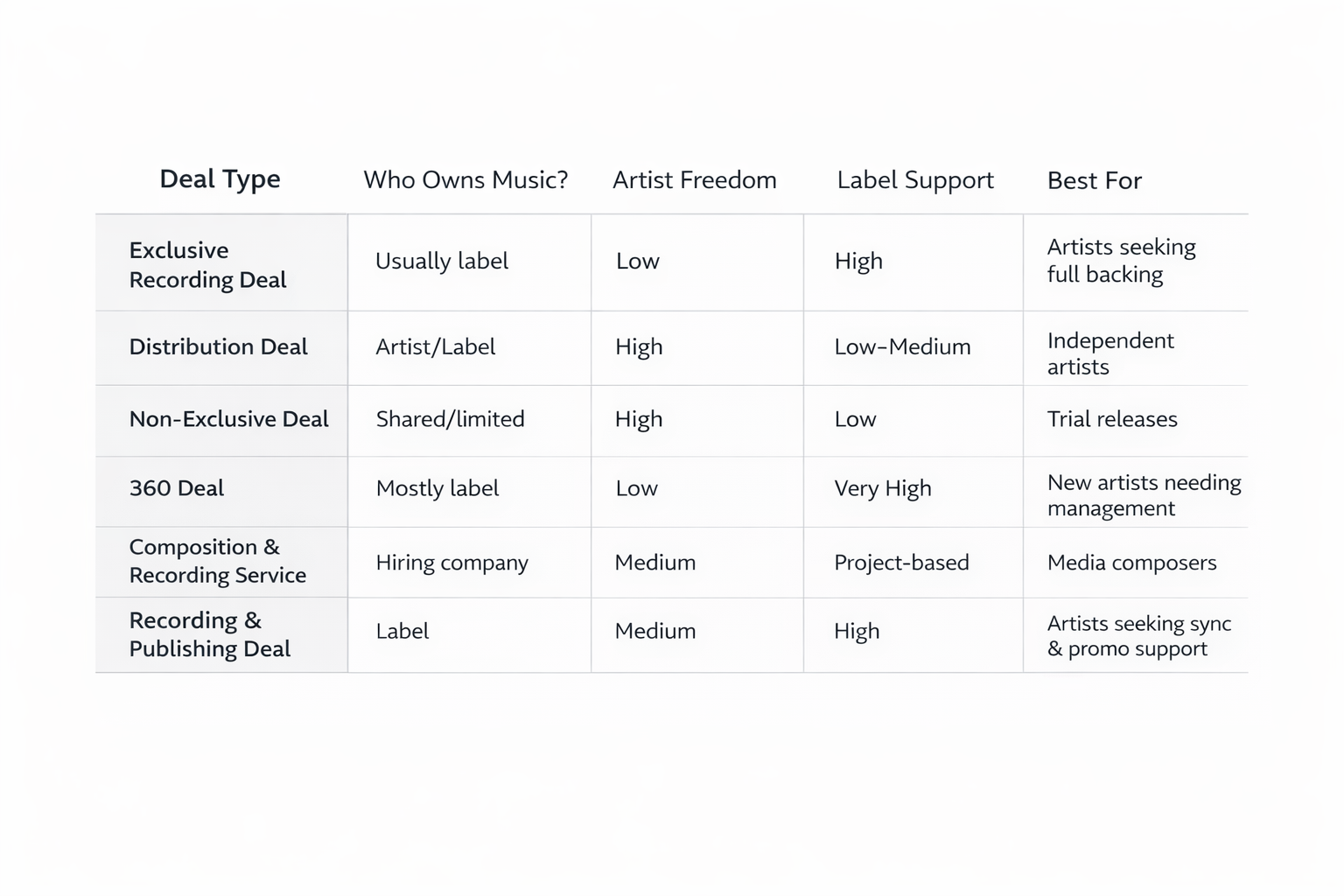
1) Exclusive Recording Deal – Big Support, Big Commitment
This is the classic record deal. You work exclusively with one label, and they usually control the music released during that time.
The upside? Labels invest money, marketing, and connections. They may fund recordings, videos, tours, and PR campaigns that independent artists often struggle to afford.
The downside? You lose flexibility. If things go wrong, getting out can be difficult, and unreleased music may stay locked with the label.
Artists sometimes find themselves unable to release music quickly because label schedules control launch timing. So while support increases, creative momentum can slow down.
Ask yourself: Do I want strong backing right now, or do I still want creative independence?
2) Distribution Deal – Keep Control, Get Reach
Here, the distributor simply puts your music on streaming platforms and stores.
You usually keep ownership, and they take a percentage of revenue. Many modern artists choose this route to maintain independence while still achieving global distribution.
This deal suits artists who already handle branding and promotion themselves. If you’re active on social media and know how to build audiences, this can work well.
The catch? Distribution doesn’t guarantee listeners. Without marketing, even well-distributed music can go unnoticed.
3) Non-Exclusive Recording Deal – Low Risk, More Freedom
A label works with specific songs, but you’re free to collaborate elsewhere.
Many artists use this as a trial partnership or for one-off releases. It allows both sides to test chemistry without long-term pressure.
However, since labels don’t fully control your output, they may invest less in promotion. Marketing budgets and support often remain limited.
Still, it’s a great option if you want exposure without locking your entire career into one partnership.
4) 360 Deal – Support Everywhere, Revenue Shared Everywhere
A 360 deal means the label earns from multiple parts of your career:
- Music releases
- Tours and performances
- Merchandise
- Sponsorships and brand deals
Labels argue they invest across your whole career, so they deserve a share everywhere. For new artists without managers or teams, this can provide valuable structure.
The problem? As you grow, that shared revenue grows too, and not always in your favor. Even the income you build independently may still be shared.
Artists sometimes later feel trapped when touring and merch become their biggest income streams but are still tied to label revenue splits.
5) Composition & Recording Service Deal – Work for Hire
In this case, a company hires you to create music for films, ads, or games.
You get paid upfront, but the company owns the music afterward. This means future licensing income goes to them, not you.
However, you can still collect performance royalties through organizations like PRS or ASCAP when applicable. Many producers use this path to build credits and industry networks.
It’s less about artist branding and more about professional work opportunities and income stability. Great for producers and composers building credits and cash flow.
6) Recording & Publishing Deal – Two Birds, One Contract
Here, the label controls both recording and publishing rights for specific songs while promoting and licensing them.
This can lead to film, TV, or sync placements, but you’re giving up more control. The benefit is that labels actively pitch your songs for licensing opportunities worldwide.
Artists who want aggressive promotion and placement opportunities often choose this deal type. However, publishing rights are long-term assets, so giving them away requires serious consideration.
Always check how long publishing rights remain with the label before agreeing.
What Artists Often Overlook in Deals
Many artists focus only on signing, not on what happens after.
Before saying yes, check:
- How long the contract lasts
- Royalty splits and recoupment rules
- Who owns music later?
- Release commitments
- Creative control clauses
Pro tip: If a deal feels rushed, slow down. Good deals don’t disappear overnight.
So… Which Deal Should You Choose?
Ask yourself honestly:
- Do I need funding or exposure?
- Am I okay giving up ownership?
- Do I want flexibility or security?
There’s no universal “best” deal, only the one matching your career stage.
FAQs
What deal is safest for new artists?
Distribution and non-exclusive deals usually offer the most flexibility and ownership.
Are 360 deals always bad?
Not necessarily. They help artists needing structure and investment, but income sharing is wider.
Do artists lose music rights in deals?
Often, yes, especially in exclusive and publishing deals.
Should artists hire a lawyer before signing the fine print?
Yes. One good legal review can save years of regret.
What is cross-collateralization?
Labels can recoup losses from one project using revenue from another.
How do advances and recoupment work?
Advances are upfront payments; labels recoup them from your royalties before you earn profit.
Final Thought
A record deal shouldn’t feel like winning the lottery; it’s not just about signing a contract, it’s about building a smart partnership. The right deal can give your music the resources, reach, and mentorship you need. The wrong one can limit your creative freedom, tie you into unfavorable revenue splits, or take ownership of your hard-earned music. The key is understanding the fine print: who owns your music, how revenue is shared, what commitments the label expects, and how long you’re bound to the contract.
We at GreaseRelease, have a bunch of curators on our network who are looking for new & exciting music to push on their massive playlists. If you make music and want to reach a wider audience, check out our submission platform and get a chance to reach millions of listeners! Submit your tracks now!
Don't miss my newsletter!
Join me on a music entrepreneurship journey with new tips and tricks delivered straight to your inbox.
We hate SPAM. We will never sell your information, for any reason.

